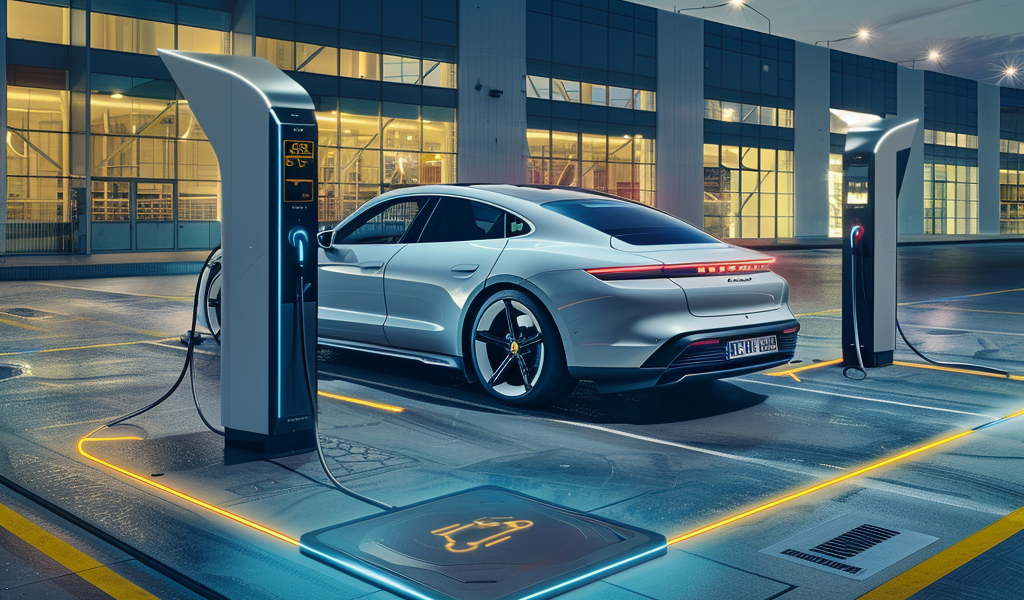Volkswagen and DOE Achieve Milestone in Wireless EV Charging with Porsche Taycan
In a groundbreaking achievement, Volkswagen, in collaboration with the U.S. Department of Energy’s (DOE) Oak Ridge National Laboratory, has set a new record in wireless electric vehicle (EV) charging using the Porsche Taycan. This innovative testing could pave the way for a significant shift from traditional internal combustion engine vehicles to electric alternatives.
Officials from Oak Ridge highlighted that the wireless EV charging technology being developed mirrors the convenience of wireless charging used for smartphones and other small electronic devices. This advancement is crucial as it seeks to enhance the practicality and efficiency of EV charging systems.
During the tests, researchers successfully transmitted an impressive 270 kW of power to the Porsche Taycan, surpassing previous capabilities. Previously, the power transfer systems available in the market were limited, being able to transfer only up to 11 kW of power at a 92% efficiency rate. This limitation posed challenges for the Taycan, which could not accommodate the bulky and heavy systems that were standard until now.
The milestone comes after a previous record set in March, when Volkswagen and the DOE were able to wirelessly transfer 100 kW of power to an EV. With this latest experiment, the partnership has once again pushed the boundaries of what is possible in wireless EV charging.
For this innovative experiment, scientists at Oak Ridge devised a wireless charging system that was ingeniously installed in the undercarriage of the Porsche Taycan. This new system is built with lightweight, polyphase electromagnetic coupling coils, which allow for a higher power density within smaller coils measuring just over 19 inches in diameter.
One of the standout features of this wireless charging system is its ability to transfer power across a gap of nearly 5 inches between the ground and the coil. Oak Ridge scientists estimate that this system could charge a Porsche Taycan up to 50% in just 10 minutes while maintaining an efficiency rate of over 95%. Furthermore, the system is designed to prevent issues such as excessive voltage or current, short-circuiting, and overheating, enhancing the safety and reliability of the charging process.
This advancement in wireless charging technology represents a significant step forward in the automotive industry, particularly as the demand for electric vehicles continues to rise. With the ability to charge vehicles more efficiently and conveniently, Volkswagen and DOE’s research may play a crucial role in accelerating the transition to electric mobility.
The implications of this technology extend beyond just the Porsche Taycan. As automakers increasingly focus on electric vehicle development, the success of wireless charging systems could influence the design and functionality of future EVs, making them more user-friendly and accessible to a broader audience.
As the automotive landscape evolves, innovations like those developed by Volkswagen and the DOE could help reshape consumer perceptions of electric vehicles, making them a more viable option for everyday use. With ongoing research and development, the future of wireless EV charging looks promising, potentially revolutionizing how we power our vehicles.





